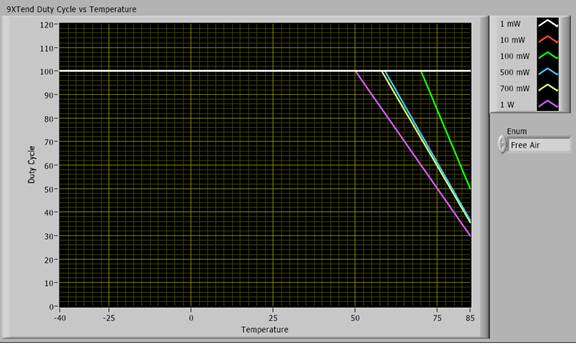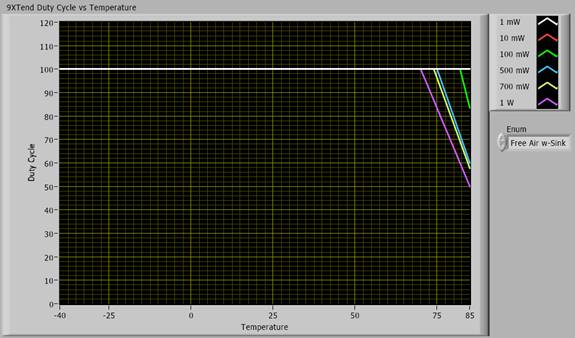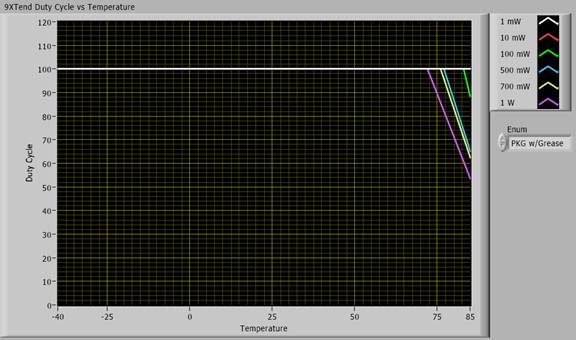The 9XTend radio is a 1 Watt Frequency Hopping Spread Spectrum radio. The FCC and Canadian agencies have limited the amount of power that radio can broadcast in the 902 -928 MHz ISM band. While there are range advantages to transmitting at 1 Watt, one of the disadvantages is the amount of heat that can be produced.
The duty cycle of a radio is defined as the percentage of time transmitting vs. the time receiving. As an example, something that is receiving 90% of the time and broadcasting the rest of the time would be operating at a 10% duty cycle.
If the XTend OEM module transmits too frequently at a high ambient temperature, the module can go into thermal shutdown to protect itself from any damage. The module will go into thermal shutdown if the board temperature reaches 105C. Normal operation will resume once the board temperature has dropped to 100C. The WN command on the radio can be used to view over-temperature occurrences (See the OEM product manual).
At ambient temperatures below 50 degrees C, the XTend OEM module can operate at 100% duty cycle without any over-temperature issues. At temperatures above 50C, the way the XTend can operate is dependant upon the amount of time it is transmitting. The graph below shows the allowable duty cycle in relation to the ambient air temperature. For example, at 75C and 1 Watt, the XTend can only operate at a 50% duty cycle without temperature concerns.
 Fig. 1 XTend OEM module in free air
Fig. 1 XTend OEM module in free air
In addition to testing the bare OEM module, the XTend radio was also tested with an external heatsink and in a PKG. The heatsink that was used for tested was purchased from Digikey. (Digikey P/N 345-1070-ND)
 Fig. 2 XTend OEM module with Heatsink
Fig. 2 XTend OEM module with Heatsink
With the heatsink, at 1 Watt an 80% duty cycle can be maintained up to 75C and a 50% duty cycle can be maintained up to 85C.
 Fig. 3 XTend PKG
Fig. 3 XTend PKG
The XTend PKG has an internal heatsink and can operate at the full 1 Watt at a 90% duty cycle at 75C.